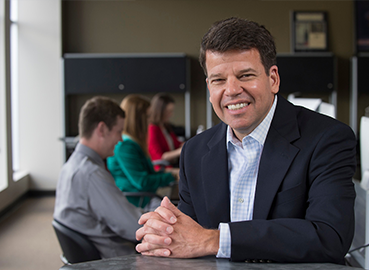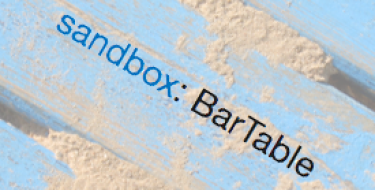Do Less, Do Better, Get More
If, as Joel Gascoigne writes from Javea, Spain in a recent post, “The key to startup productivity is managing energy, not time,” then a similar concept applies in marketing.
The idea that “in content marketing it’s not quantity, but quality, that matters” is not a new one, and only mildly tangential to an arguably angry post I published recently on the Digett blog.
Since that rant, however, I’ve climbed down from my high horse and am now engaging in a more productive internal dialogue aimed at improving the quality of Digett’s work product.
How, I ask myself, does one lead an organization to deliver ever greater work for our clients? Joel got me thinking about the importance of renewal, which leads directly to the first of three ideas I am pursuing both in personal and work life in order to find more meaning.
Great work originates from creative minds
You can’t light a fire with a wet match. I believe, though, we all are blessed with an eternal pilot light which — when sheltered from the storm of (mostly useless) thoughts that invade and occupy our brains — can spark a masterpiece. Creativity is enabled from within, and only by the aspiring creator.
As leaders we must start with an honest look in the mirror. We practice and strengthen our self-awareness, and as we do our presence yields positive energy associated with, for example, joy and gratitude. Then we help others achieve the same awareness through teaching, mentoring, and encouraging. And voilá, those from whom we expect greatness often rise to the challenge, be they programmers, designers, editors, analysits, or bad-ass project managers. In this state of being, renewal comes continuously.
I’m not saying it’s a bad idea to “get away” from time to time. For some it’s downright important. But I suggest that we should be separating ourselves from our vocational passion in order to seek balance in our lives (think Tao Te Ching) rather than to “refuel.”
We may envision an outcome, but we experience only the journey
My most meaningful achievements have never correlated with my so-called “goals.”
When I was a young boy I took on the enormous challenge of running a trap line in the swamps and rice fields of southeast Texas where the intersection of the Piney Woods and Gulf Coast form an outdoorsman’s paradise. While I was a power user of checklists to help ensure I always had the vast assortment of tools, baits, all-terrain vehicle repair items, ammunition, and warm weather clothing I might need at any moment, I did not have a list of goals back in my desk drawer at home that led me to become an expert trapper.
I simply lived every day as if it were my last, experiencing every moment — every breath of ice-cold fresh air, every painfully cold extremity, every thrill of success, every disappointment — as if I may not have another full day of moments in my future. I followed my passion, and I have never been happier than I was then. Goals were never a part of that picture.
I don’t have anything against goals, per se, and some people apparently find great benefit in setting and pursuing them. But for me, my goals have generally ended up reprenting an ideal in the form of a “destination” of some sort.
As it turns out, I’m a lot less effective at finding fulfillment in destinations than I am at discovering wonder, intrigue, and amazement along the path I’m on now; whatever path that may be.
Given my own experience, I see no choice but to serve up this perspective to my team at Digett. It’s not “happy clients” we are striving for, for example. It’s not a profit margin of 25%.
I ask only that my teammates give themselves to the present; that they experience every moment without lamenting the mistakes of yesterday or anticipating the possible rewards of tomorrow. Let this moment, this task, this challenge, serve to awaken our hearts and minds.
We cannot more effectively serve our clients anywhere else but in the present, and why would we want to try to dwell elsewhere, anyway?
In this process we gain access to a joy, passion, and a previously-unknown creative capacity. Along this journey great work takes form.
Be prepared for “inefficiency” in pursuit of creativity
Great works take time. Nobody says “Ol’ Abe Lincoln took way too long to write the Gettysburg address.” I wasn’t there, but I bet the President took his precious time distilling his thoughts on the war down to ten sentences. Yes, ten.
If we are experiencing the journey fully, then what do we care how long it takes? Sure, we have client budgets to consider. Sufficient budget or not, though, are we better off staying in business if we are living in the hell of mediocrity? Count me out and sign me up to walk the plank as long as I can be free to truly live those last few steps.
If great work takes time, then one may ask, “How on earth will we get our quota of articles published this month?" Well, maybe it’s time to reconsider the overly-ambitious editorial calendar as the perfect place to begin our new adventure. How about chopping eight monthly articles down to two? Or one? Or one every two months?
I guarantee you that if you’re producing mediocre content now — and if you’ll shift the same time you have invested in the eight articles into producing one high quality piece of content — you’ll be better off. We are all practically drowning in a sea of mediocre content, so what makes you think yours is somehow going to rise above the noise? Stop doing mediocre.
To conclude, I beseech thee, dear reader, to abandon thy commitments to engage in activity that doesn’t matter. Save your energy for the stuff that does. It will likely mean you do less, but in so doing you will do better.
[Image: chris]
MONTHLY MARKETING INSIGHTS.
Get thought-provoking and actionable insights to improve how your firm makes a connection with your customers.






LEAVE A COMMENT